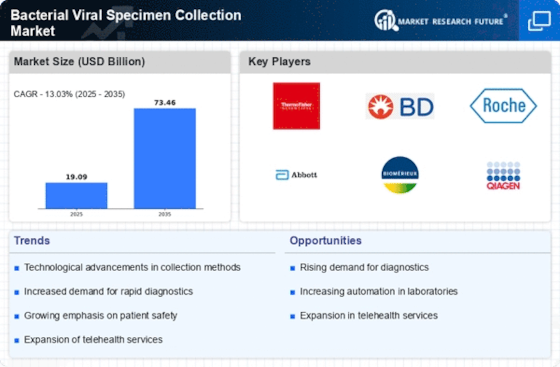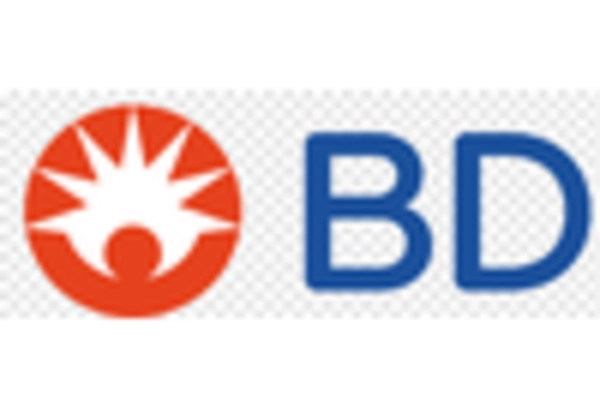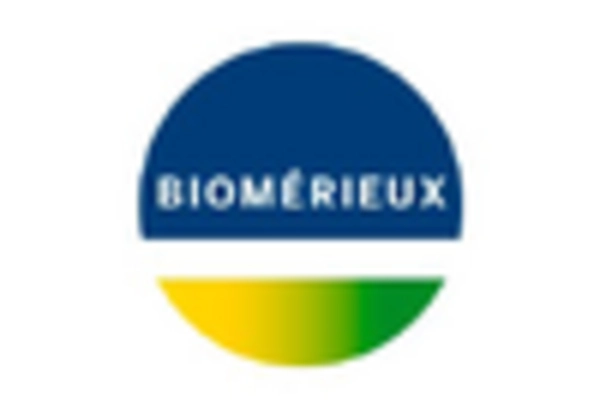Market Trends
Key Emerging Trends in the Bacterial Viral Specimen Collection Market
The Bacterial Viral Specimen Collection Market is evolving with a range of emerging trends in diagnostic testing and efforts to improve specimen collection techniques for infectious diseases. Notably, there has been increasing demand for non-invasive specimen collection methods. The preference for non-invasive technologies such as saliva and nasal swabs over invasive procedures is growing due to their importance on faster and accurate diagnosis. The move in this direction shows that the industry wants patients to be as comfortable as possible when collecting samples so that they minimize healthcare-associated risks.
The market trends in the Bacterial Viral Specimen Collection Market are shaped by technological advancements. This has led to development of more effective and dependable ways of sampling through innovations in collection tools, transport media, and preservation processes. Manufacturers are working towards developing pocket-friendly user-friendly kits that can facilitate proper storage of samples which may be used for both viral and bacterial tests since they have to maintain integrity during the trip to the laboratory.
The increased popularity of multiplex specimen collection devices represents another trend in this field. In addition, these devices minimize repetitive activities involved in collecting different types of specimens from one patient thus streamlining diagnostics. They enhance efficiency, cost reduction as well as ensuring comprehensive diagnosis especially regarding co-infections or multiple pathogens.
Integration of artificial intelligence (AI) and smart technologies into specimen collection devices is yet another key trend within the industry. Real-time data tracking, temperature monitoring, and quality control are some benefits provided by employing intelligent gadgets while collecting specimens from patients. These approaches do not just ensure a reliable specimen but also making sure that all relevant parties get answers concerning the entire diagnostic procedure.
The Bacterial Viral Specimen Collection Market is being guided by remote specimen collection focus together with home testing kits evolution. This has seen an increase use of at-home sample collection kits owing to telemedicine’s rise alongside decentralized health solutions. The convenience created by home testing kits decreases healthcare facility burdening enabling access to diagnosis services, especially in low-resource regions.
Market trends are also influenced by a growing focus on environmental sustainability in specimen collection. These kits have sustainable packaging solutions, reduced plastic waste, and use of eco-friendly materials by manufacturers. This trend is part of the industry’s wider commitment to environmentally friendly practices as there is increasing realization about the impact of healthcare-related products on nature.
The Bacterial Viral Specimen Collection Market is turning towards integrated diagnostic solutions. Manufacturers develop specimen collection devices that can be used in various diagnostic platforms including molecular assays, immunoassays and next-generation sequencing (NGS). It promotes compatibility thereby making it possible for nonstop sample harvesting during medical testing processes.
The point-of-care specimen collection need has equally prompted the market to react. Therefore, quick and easy-to-use specimen collection methods are required for rapid diagnostic tests at the point of care (POC). Point-of-care devices for capturing specimens have been designed by different manufacturers which allow at once examination thus fast response and timely patient care management.


















Leave a Comment